More than one-tenth of UK foreign aid spent on climate-related projects since 2010 has been channelled through consultancies, a new Carbon Brief investigation reveals.
To obtain these figures, Carbon Brief analysed more than 25,000 transactions listed on the government’s Development Tracker website from projects that contribute to the UK’s International Climate Finance (ICF).
While most UK climate funds are spent via large international bodies, such as the World Bank and UN agencies, a large proportion has been entrusted to the private sector.
At least £2.11bn has been handed to dozens of management consultancies, such as KPMG, PwC and Adam Smith International. They have provided guidance on everything from hydropower dam construction in Nepal to farm diversification in Ethiopia.
These consultancies are nearly all headquartered in the UK and other global-north countries. Experts tell Carbon Brief there is opposition among some developing countries to climate aid being funnelled first through foreign consultancies rather than disbursed directly via local actors.
This also comes at a time of wider scrutiny from politicians and academics of the outsized role relatively expensive private consultants play in public life.
Climate transactions
The UK has committed to providing “climate finance” to developing countries to help them deal with climate change. The government distributes this money primarily through ICF, which is part of the foreign-aid budget.
Most UK climate finance is spent via a combination of UN agencies, development banks, international NGOs, management consultancies, foreign governments and local charities.
These organisations are entrusted by government departments with carrying out projects, conducting research and dispersing funds in developing countries.
While much of the money will have gone directly to projects, all of these organisations take cuts along the way to pay staff and other expenses. The spending decisions they make affect how much of it ends up directly benefiting climate-vulnerable people and funding low-carbon infrastructure.
Data on all the financial transfers from the UK government to these entities can be found on the “transactions” section of every project page on the government’s Development Tracker website. This includes everything from accommodation costs for aid staff through to large contributions to UN funds.
In June 2023, Carbon Brief extracted transaction data from every ICF-tagged project on the government’s Development Tracker website.
(This includes every project that contains a component of climate-related funding, but many projects also cover other issues, such as education and healthcare. Therefore, figures are higher than Carbon Brief’s previous reporting on the climate-specific portions of these funds.)
In total, £19.12bn has been “disbursed” to or “placed at the disposal of” recipient agencies, governments and other entities between 2010 and 2023. In addition, a far smaller sum of £832.96m is classed as “expenditure”, which covers money spent on goods and services.
Of the funds disbursed, information is missing for £4.86bn worth of transactions, where “receiver organisation” is listed as “N/A” or similar.
Consultant spending
The government has channelled £2.52bn of its ICF-labelled funds – 13% of the total – through private companies. Most of this money, £2.11bn, was spent via organisations Carbon Brief has identified as consultancies.
This amounts to 11% of the total – or 15%, once anonymous transactions are excluded.
Broadly speaking, management consultancies are companies that provide advice on how to run other organisations more effectively. They range from small, specialist companies to the “big four” accounting firms, which are multinational companies and span a large range of activities.
The share of total spending placed at the disposal of these companies for climate-related projects, including the largest recipients, is shown in the chart below.

The UK government has both scaled up its spending on consultants and made it easier for public-sector bodies to hire them in recent years. At the same time, their role in public life has been under growing scrutiny. Academics, politicians and officials have criticised the “outsourcing” of responsibilities to expensive private contractors.
In 2020, UK Treasury minister Theodore Agnew warned that a growing reliance on consultants “infantilises the civil service”. A 2016 National Audit Office report found that hiring outside specialists cost the government twice as much as an equivalent staff member.
Responding to these concerns in her speech at the Labour party conference this week, shadow chancellor Rachel Reeves vowed to “slash” consultancy spending by half, if her party wins the next election.
The Conservative government has cut overall foreign-aid spending in recent years, citing the pressures of the Covid-19 pandemic.
The data extracted by Carbon Brief shows that, while consultancy spending within climate-related funds has also dropped year-on-year since 2019, the proportion of these funds going to consultancies has remained fairly constant. Indeed, an investigation by Climate Home News in 2018 identified a similar proportion being funnelled to these organisations.
54 consultancies
The table below shows the 54 consultancies that have been handed UK government funds to carry out climate-related projects since 2011.
Nearly all of these consultancies are headquartered in developed countries – 49 in total – and 33 of those are based in the UK. (Some consultancies have large regional branches in developing countries, but these have been combined together for this analysis.)
(Carbon Brief also identified an additional 76 consultancies listed under “expenditures” that have been paid far smaller sums, totalling just £8.04m, to carry out “technical and advisory work”.)
The biggest consultancy recipient since 2011 has been Adam Smith International (ASI), a “global advisory company”, which has been handed a total of £333.21m. An ASI spokesperson tells Carbon Brief the organisation “[does] not recognise” the figure derived from UK government reporting.
ASI’s biggest climate-related project, for which it received £100.14m between 2012 and 2017, was the Nigeria Infrastructure Advisory Facility (NIAF).
The consultancy led an international consortium that implemented this programme and provided advice to the Nigerian government. This included designing various climate-related projects such as rolling out solar mini-grids and clean cookstoves for rural areas.
According to ASI, “in the power sector, NIAF’s headline achievement has been its role in the privatisation process”. An ASI spokesperson tells Carbon Brief that, at the time the consultancy stopped managing the NIAF project in 2017, its “efforts to bolster the power supply” were saving Nigerian consumers more than £1bn per year.
The company has faced controversy in the past and was accused by MPs on the International Development Committee in 2017 of displaying a “serious lack of judgement”, following allegations that it had invented testimonials or pressured beneficiaries to provide positive feedback.
At the time, ASI issued a lengthy document responding to the allegations and stating it acted in “good faith”. It has continued to receive climate-related funds since, although its annual disbursements have dropped significantly since 2016.
The consultancy IMC Worldwide, which has now been renamed DT Global, has been another major recipient of UK climate-related funds, accruing £267.16m in total.
One of its larger projects is Accelerating Investment and Infrastructure in Nepal, for which it has received £12.88m to advise the Nepalese government. Specifically, for this project the consultancy’s focus has been overcoming “delivery bottlenecks” to making large-scale investments in projects such as hydropower dams.
Large portions of spending have also gone to “big four” firms KPMG and PwC. Across their UK-based operations and offices in developing countries, these companies have received £242.37m and £204.37m, respectively.
Across several regional offices, KPMG has received £242.37m in funds from the UK’s ICF budget. Its biggest project was the Building Resilience and Adaptation to Climate Extremes and Disasters project, which saw KPMG East Africa handed £117.40m between 2014 and 2019.
This project involved KPMG managing grants awarded to 15 projects, ranging from helping farmers in Ethiopia to diversify their activities to preparing vulnerable people in Senegalese cities to prepare for flooding. The consultancy also monitored project progress.
PwC has received £204.37m in funds, including £33.81m for a project titled Private Sector Development programme in the Democratic Republic of Congo between 2013 and 2022.
The consultancy implemented a component of the project called Essor, which focused on improving “the country’s business environment” and “equitable and affordable access to renewable energy”. This included developing a bidding process for solar mini-grids and attracting external investors to the DRC by identifying barriers to entry.
Local capacities
International climate finance is explicitly framed as a way for relatively wealthy, developed countries to support climate action in developing countries, given their greater responsibility for causing climate change and capacity for dealing with it.
Reliance on consultants from the global north to carry out climate-finance programmes overseas can, therefore, be contentious.
Clare Shakya, a climate finance expert at the International Institute for Environment and Development (IIED), tells Carbon Brief that while consultancies tend not to be transparent about the rates they charge, she estimates they are in the region of 20% of the grant value.
Given this, Saleemul Huq, director of the International Centre for Climate Change and Development (ICCCAD) in Bangladesh, tells Carbon Brief, the large amount of ICF funding that likely remains in developed countries is “against the spirit of supporting the development of local capacities”. He adds:
“Funding actions at the local level to tackle climate change, particularly adaptation, works best when investing in local capacities and communities rather than international consultants. There is a long history of sending international consultants to developing countries to assist in tackling climate change, which has not resulted in any real benefits after the international consultants leave the country.”
Faten Aggad, a climate diplomacy expert and adjunct professor at the University of Cape Town, tells Carbon Brief:
“Many international consultancy companies have no boots on the ground [and] recruit ad-hoc consultants – many of whom do not understand the context in which they operate.”
Least developed countries (LDCs) and small-island states, in particular, have pushed for funding for more long-term climate action rather than the project-based activities consultancies often support, according to Shakya. She adds:
“The poorest and most climate-impacted countries are clear that business-as-usual in climate finance is not working for them. Short-term projects driven by external experts are failing to provide the support they need to transform to low-carbon development and greater climate resilience.”
Some developing countries have also emphasised the need for climate finance that directly flows to local communities. The LDC group, which represents 47 nations at UN climate talks, has called for 70% of climate finance to support “local-level action” by 2030. LDC chair Madeleine Diouf Sarr tells Carbon Brief:
“It’s really important that climate finance that is available is spent wisely and used effectively. Climate finance must respond to and address the real needs and priorities of the countries it sets out to support, as identified by those countries.”
An ASI spokesperson tells Carbon Brief that the consultancy “ardently ensures optimal value for money in [its] projects”, with “competitively and responsibly structured” fees and “transparency in [its] financial dealings, including profitability and expenditure”.
They also state the organisation “places a paramount emphasis on both leveraging and strengthening local capacities in all our projects”, with the “majority” of ASI funds being used to engage national consultants and partner with local groups.
To illustrate this, they note that the NIAF programme in Nigeria increased its team composition from 60% to 80% Nigerian nationals during ASI’s tenure, and saw some consultants take up senior roles in the Nigerian government.
Both KPMG and PwC declined to comment on Carbon Brief’s findings or the criticism of consultancies running climate-finance projects. They also declined to share information on how much money they retain as fees for their services on these projects. DT Global did not respond to a request from Carbon Brief for comment.
The UK government declined to comment on its use of consultancies to administer climate-finance projects.
Other climate fund recipients
Carbon Brief’s analysis shows that most climate-related, foreign-aid spending is channelled into multilateral institutions, such as UN bodies and development banks. In total, they received £6.49bn – one-third of the total spending.
By far the largest recipient of UK disbursements is the International Bank for Reconstruction and Development – a branch of the World Bank that lends money to developing countries. It has received £1.40bn in total.
This is followed by the Global Environment Facility (GEF), Unicef and the UN World Food Programme, which received £1.01bn, £904.24m and £750.05m, respectively.

Joe Thwaites, a senior advocate for international climate finance at the Natural Resources Defence Council (NRDC), tells Carbon Brief that the UK is generally “better” than other wealthy countries at distributing money via multilateral institutions.
He says this is often a more popular option with developing countries – as evidenced by the long push for a new “loss and damage” fund – because they can often have more input into how money is spent. Thwaites adds:
“When it’s a multilateral fund it’s easier to have a say…whereas, if you’re in a bilateral relationship, there’s a big power inequity there.”
Far less money is sent directly to governments and public-sector organisations – just £2.49bn in total. This is less than the money channelled via the private sector.
Roughly one-quarter of this public-sector money has gone to governments and agencies in developed countries. This could mean paying for anything from the UK Met Office helping with typhoon forecasting in the Philippines to the German development agency GIZ assisting with a water management project in South Africa.
This leaves just £1.86bn – or 13% of the UK’s climate-related spending since 2011 – that goes directly to governments in developing countries.
A small selection of developing-country governments have received large sums of money directly from ICF funds. For example, Ethiopia’s ministry of finance and economic development has received £509.52m and the government of the Pakistani province of Khyber Pakhtunkhwa has received £431.24m.
A large variety of NGOs have also received big disbursements from the UK government to carry out climate-related projects in developing countries.
While around £327.87m has gone to national NGOs located in target countries, far more – £1.87bn – has gone to large international NGOs, such as Population Service International (£116.84m), Norwegian Refugee Council (£97.47m) and Save the Children UK (£91.68m).
By far the largest NGO recipient has been BRAC, a Bangladesh-based international NGO, that has been given £448.07m, largely as part of a partnership to provide basic service to the poorest people in Bangladesh – including “increased access to climate resilient services”.
Methodology
In June 2023, Carbon Brief extracted data from the “transactions” tabs on every ICF Development Tracker page to understand which organisations were being given money by the UK government to carry out these projects. Data was extracted by Tom Prater using Import.io and Octoparse.
This analysis is based primarily on “disbursements” data – defined by the government as “the amount placed at the disposal of a recipient country or agency”. As well as projects that are 100% International Climate Finance (ICF), this data also covers projects that cover a mix of ICF and other types of development aid, such as education and healthcare.
The Development Tracker website includes data on “organisation type” for each transaction. However, this data was not included for around £4.54bn worth of transactions. Carbon Brief manually filled in missing entries where possible, using the same categories employed by the UK government and referring to the organisation profile pages on the global development news platform Devex as a guide.
Devex was also used by Carbon Brief to identify the country in which institutions were headquartered and whether they could be described as “consultancies”. For some smaller consultancies or ones that have been closed down, Carbon Brief identified them as consultancies using the UK government’s Companies House website.
Some transactions could not be assigned an organisation type or any other details. Examples include those listed as “corrections” or “journal transactions”, which indicate cases where accounting corrections have been made. In some cases, the name of the organisation is “withheld”.
This analysis covers transaction data listed for ICF projects overseen by the Foreign, Commonwealth and Development Office (FCDO), the Department for Energy Security and Net Zero (DESNZ) and the Department for Environment Food and Rural Affairs (Defra). However, the majority of transactions listed under BEIS and Defra did not provide information about which organisations were involved.
The post Revealed: Tenth of UK’s climate-aid spending goes via private consultancies appeared first on Carbon Brief.
Revealed: Tenth of UK’s climate-aid spending goes via private consultancies
Climate Change
States Say They Need More Help Replacing Lead Pipes. Congress May Cut the Funding Instead.
The U.S. House voted to cut millions promised for the work this year. The Senate will vote this week, as advocates and some lawmakers push back.
The Senate is taking up a spending package passed by the House of Representatives that would cut $125 million in funding promised this year to replace toxic lead pipes.
States Say They Need More Help Replacing Lead Pipes. Congress May Cut the Funding Instead.
Climate Change
6 books to start 2026
Here are 6 inspiring books discussing oceans, critiques of capitalism, the Indigenous fight for environmental justice, and hope—for your upcoming reading list this year.
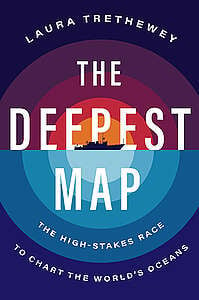
The Deepest Map: The High-Stakes Race to Chart the World’s Oceans
by Laura Trethewey (2023)
This book reminds me of the statement saying that people hear more about the moon and other planets in space than what lies beneath Earth’s oceans, which are often cited as ‘scary’ and ‘harsh’. Through investigative and in-depth reportage, ocean journalist and writer Laura Trethewey tackles important aspects of ocean mapping.
The mapping and exploration can be very useful to understand more about the oceans and to learn how we can protect them. On the other hand, thanks to neoliberal capitalism, it can potentially lead to commercial exploitation and mass industrialisation of this most mysterious ecosystem of our world.
The Deepest Map is not as intimidating as it sounds. Instead, it’s more exciting than I anticipated as it shows us more discoveries we may little know of: interrelated issues between seafloor mapping, geopolitical implications, ocean exploitation due to commercial interest, and climate change.
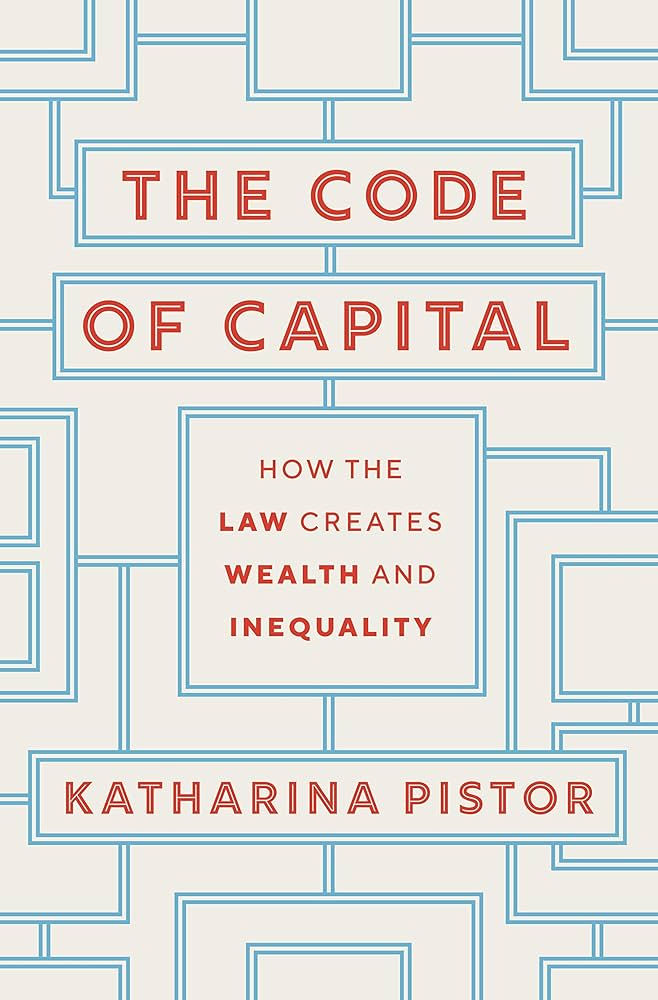
The Code of Capital: How the Law Creates Wealth and Inequality
by Katharina Pistor (2019)
Through The Code of Capital, Katharina Pistor talks about the correlation between law and the creation of wealth and inequality. She noted that though the wealthy love to claim hard work and skills as reasons why they easily significantly generate their fortunes, their accumulation of wealth would not last long without legal coding.
“The law is a powerful tool for social ordering and, if used wisely, has the potential to serve a broad range of social objectives: yet, for reasons and with implications that I attempt to explain, the law has been placed firmly in the service of capital,” she stated.
The book does not only show interesting takes on looking at inequality and the distribution of wealth, but also how those people in power manage to hoard their wealth with certain codes and laws, such as turning land into private property, while lots of people are struggling under the unjust system.
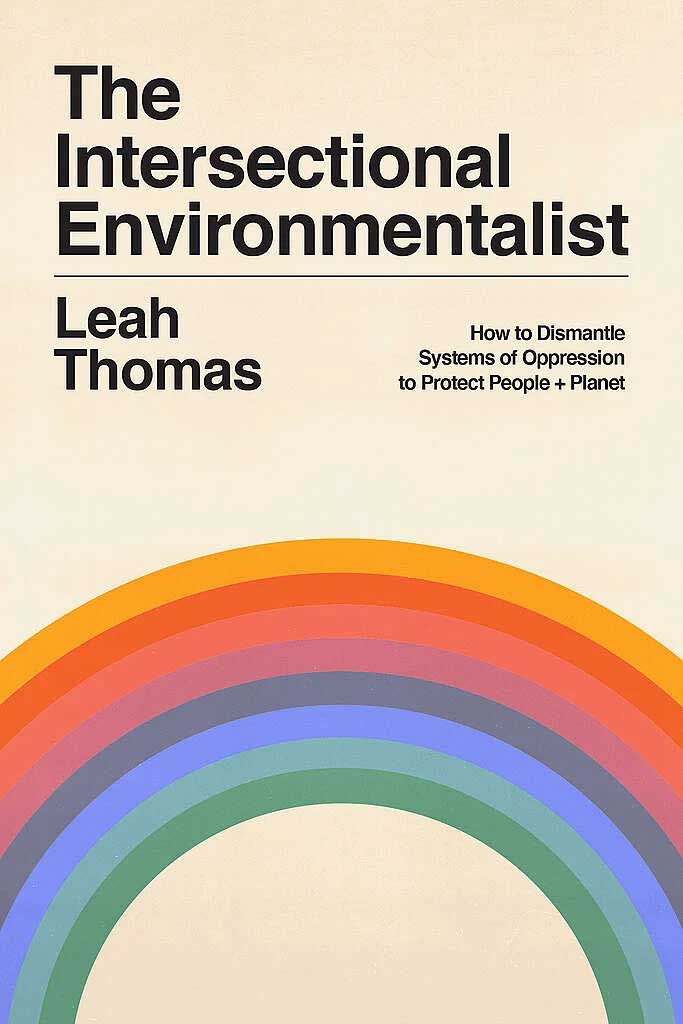
The Intersectional Environmentalist: How to Dismantle Systems of Oppression to Protect People + Planet
by Leah Thomas (2022)
Arguing that capitalism, racism, and other systems of oppression are the drivers of exploitation, activist Leah Thomas focuses on addressing the application of intersectionality to environmental justice through The Intersectional Environmentalist. Marginalised people all over the world are already on the front lines of the worsening climate crisis yet struggling to get justice they deserve.
I echo what she says, as a woman born and raised in Indonesia where clean air and drinkable water are considered luxury in various regions, where the extreme weather events exacerbated by the climate crisis hit the most vulnerable communities (without real mitigation and implementations by the government while oligarchies hijack our resources).
I think this powerful book is aligned with what Greenpeace has been speaking up about for years as well, that social justice and climate justice are deeply intertwined so it’s crucial to fight for both at the same time to help achieve a sustainable future for all.
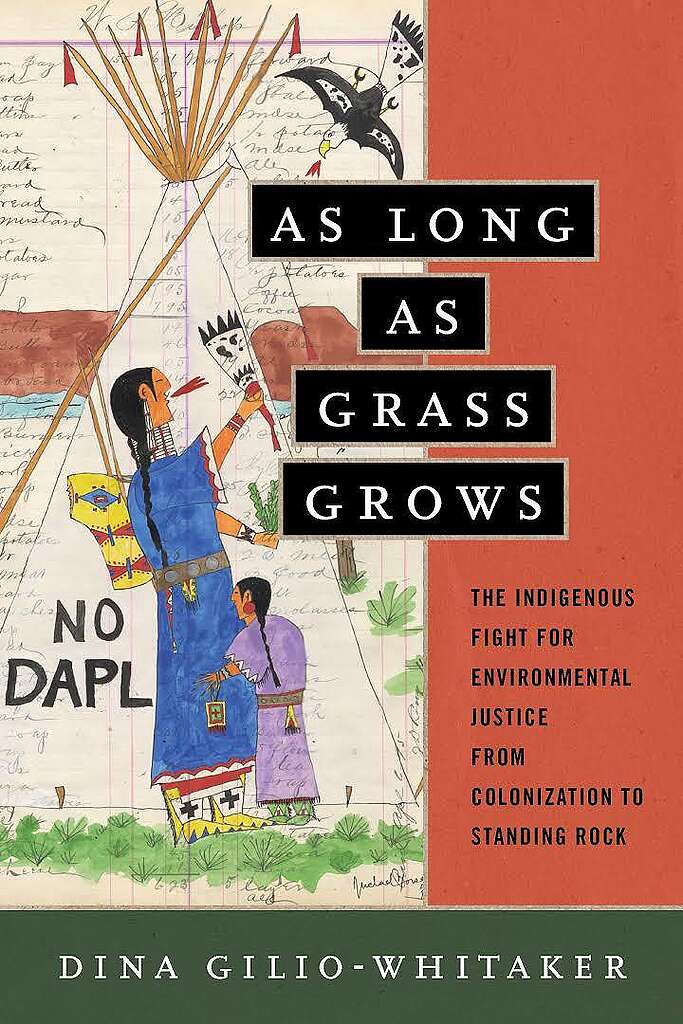
As Long As Grass Grows
by Dina Gilio-Whitaker (2019)
Starting with the question “what does environmental justice look like when Indigenous people are at the centre?” Dina Gilio-Whitaker takes us to see the complexities of environmental justice and the endless efforts of Indigenous people in Indian country (the lands and communities of Native American tribes) to restore their traditional cultures while healing from the legacy of trauma caused by hundreds of years of Western colonisation.
She emphasizes that what distinguishes Indigenous peoples from colonisers is their unbroken spiritual relationship to their ancestral homelands. “The origin of environmental justice for Indigenous people is dispossession of land in all its forms; injustice is continually reproduced in what is inherently a culturally genocidal structure that systematically erases Indigenous people’s relationships and responsibilities to their ancestral places,” said Gilio-Whitaker.
I believe that the realm of today’s modern environmentalism should include Indigenous communities and learn their history: the resistance, the time-tested climate knowledge systems, their harmony with nature, and most importantly, their crucial role in preserving our planet’s biodiversity.
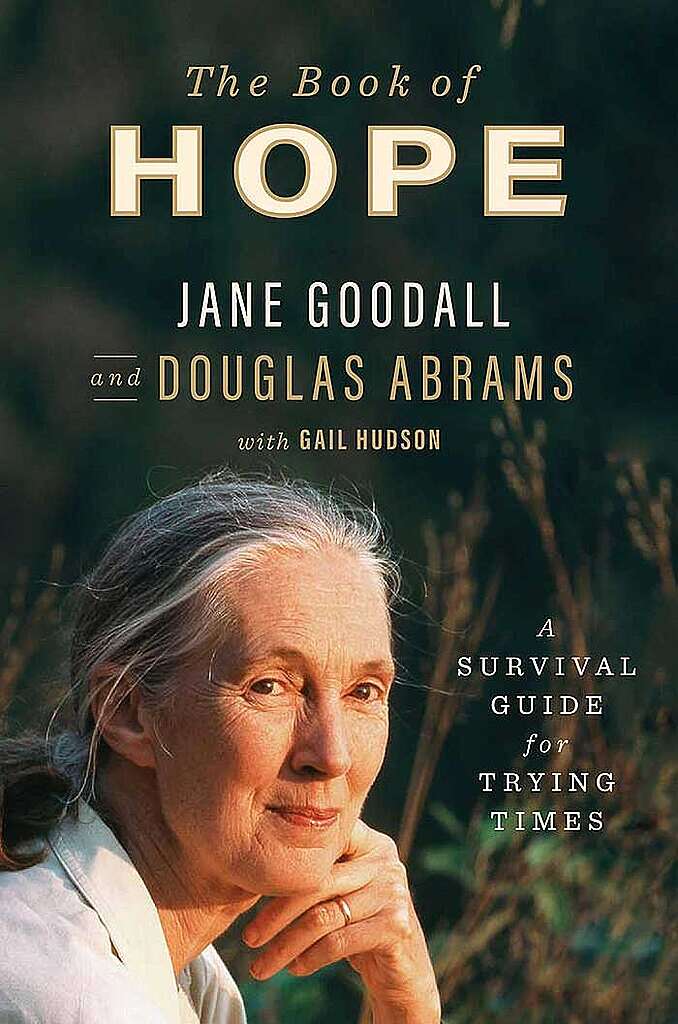
The Book of Hope
by Jane Goodall and Douglas Abrams with Gail Hudson (2021)
The Book of Hope is a marvelous glimpse into primatologist and global figure Jane Goodall’s life and work. The collaborator of the book, journalist Douglas Abrams, makes this reading experience even more enjoyable by sharing the reflective conversations between them, such as the definition of hope, and how to keep it alive amid difficult times.
Sadly, as we all know, Jane passed away this year. We have lost an incredible human being in the era when we need more someone like her who has inspired millions to care about nature, someone whose wisdom radiated warmth and compassion. Though she’s no longer with us, her legacy to spread hope stays.
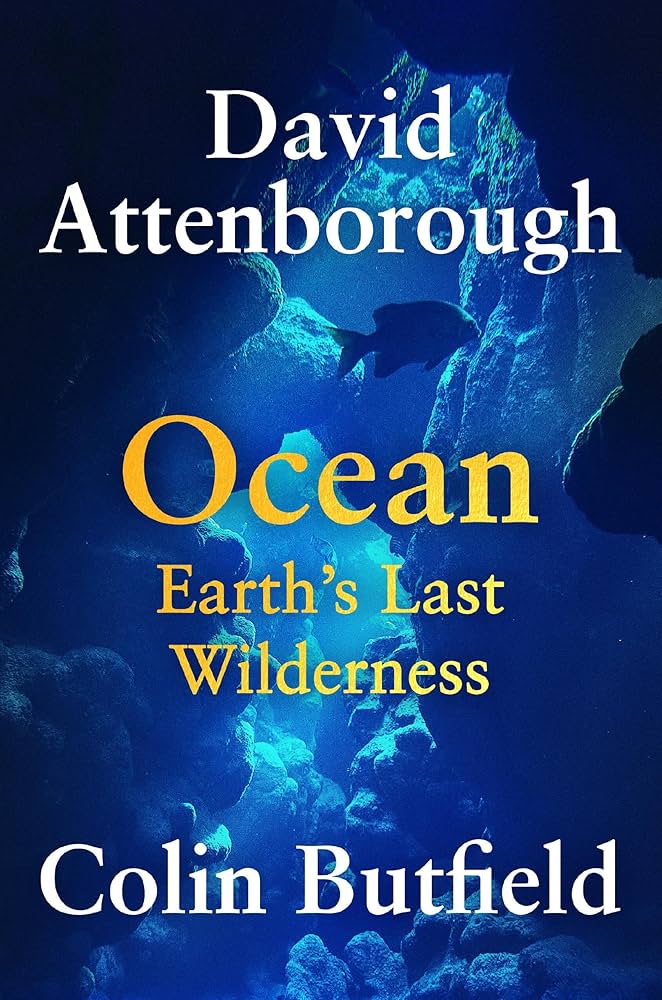
Ocean: Earth’s Last Wilderness
by David Attenborough and Colin Butfield (2025)
“I could only have dreamed of recording in the early stages of my career, and we have changed the ocean so profoundly that the next hundred years could either witness a mass extinction of ocean life or a spectacular recovery.”
The legend David Attenborough highlights how much humans have yet to understand the ocean in his latest book with Colin Butfield. The first part of it begins with what has happened in a blue whale’s lifetime. Later it takes us to coral reefs, the deep of the ocean, kelp forest, mangroves, even Arctic, Oceanic seamounts, and Southern Ocean. The book contains powerful stories and scientific facts that will inspire ocean lovers, those who love to learn more about this ecosystem, and those who are willing to help protect our Earth.
To me, this book is not only about the wonder of the ocean, but also about hope to protect our planet. Just like what Attenborough believes: the more people understand nature, the greater our hope of saving it.
Kezia Rynita is a Content Editor for Greenpeace International, based in Indonesia.
Climate Change
‘I Am the River’: How Indigenous Knowledge Reshaped New Zealand’s Law
The Whanganui River is officially a living being and legal person. Māori leaders explain how Indigenous knowledge and persistence made it happen.
Ned Tapa has spent his life along New Zealand’s Whanganui River. For Tapa, a Māori leader, the river is not a resource to be managed or a commodity to be owned. It is an ancestor. A living being. A life force.
‘I Am the River’: How Indigenous Knowledge Reshaped New Zealand’s Law
-
Greenhouse Gases5 months ago
Guest post: Why China is still building new coal – and when it might stop
-
Climate Change5 months ago
Guest post: Why China is still building new coal – and when it might stop
-
Climate Change2 years ago
Spanish-language misinformation on renewable energy spreads online, report shows
-

 Greenhouse Gases2 years ago
Greenhouse Gases2 years ago嘉宾来稿:满足中国增长的用电需求 光伏加储能“比新建煤电更实惠”
-
Climate Change Videos2 years ago
The toxic gas flares fuelling Nigeria’s climate change – BBC News
-

 Climate Change2 years ago
Climate Change2 years ago嘉宾来稿:满足中国增长的用电需求 光伏加储能“比新建煤电更实惠”
-
Climate Change2 years ago
Bill Discounting Climate Change in Florida’s Energy Policy Awaits DeSantis’ Approval
-

 Carbon Footprint2 years ago
Carbon Footprint2 years agoUS SEC’s Climate Disclosure Rules Spur Renewed Interest in Carbon Credits





